A serious, complex, and long-term neurological disorder, schizophrenia disrupts a person’s ability to think clearly. Individuals with schizophrenia are often unable to distinguish imagination from reality and find it difficult to manage emotions effectively, interpret reality, make rational decisions, and relate to others.
For this reason, schizophrenia is often detrimental to a person’s well-being and interferes with their ability to maintain relationships.
As a result, most people with schizophrenia turn to alcohol and drug use, developing a substance use disorder. They use drugs and alcohol to self-medicate or feel good and escape negative thoughts.
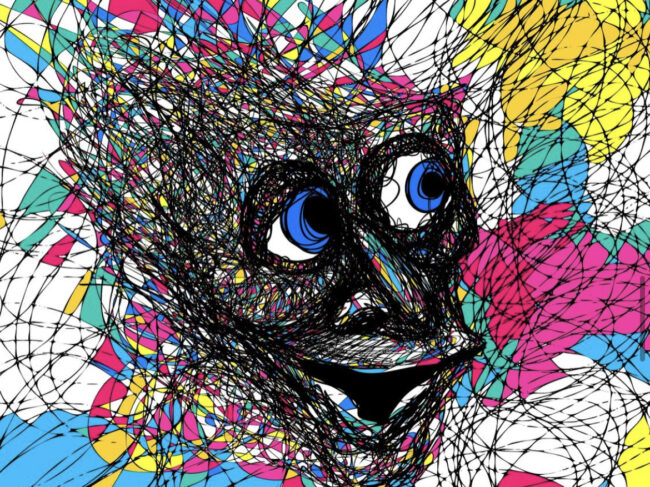
As far as statistics are concerned, according to World Health Organisation (WHO), schizophrenia affects approximately 24 million people worldwide.
On the other hand, a study shows that regular use of cannabis increases the risk of an individual developing psychosis or schizophrenia. Keep reading this article to understand the link between schizophrenia and addiction.
Symptoms of Schizophrenia
Being a brain disorder, the onset of schizophrenia is most prevalent in young adulthood. The first symptoms occur during the development of the brain and are often overlooked due to innocence.
The early symptoms of schizophrenia can hide behind the typical teenage behavior, and drug and alcohol use mask other signs.
But, being a family member, it is crucial to stay aware of the potential risk. A few common symptoms of schizophrenia in teens and young adults to look out for include the following:
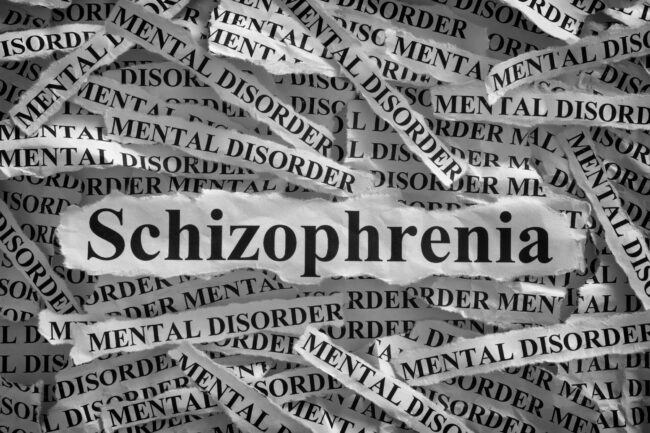
- Sudden loss of interest in favorite activities
- Neglect of grooming and hygiene
- Failure to focus on one topic for long
- The intense attention to harmful and destructive thoughts
- Inability to control impulses
- Sudden lack of awareness and flat facial expressions
- Unusual changes in speech or handwriting
- Failure to finish projects or meet commitments
- Isolation from family and friends
Over time schizophrenia also show symptoms like severe paranoia, delusional thinking, disorganized speech, disrupted motor or catatonic behaviors, and hallucinations. And these symptoms vary depending on the type of schizophrenia – paranoid, residual, confusing, and undifferentiated.
Though schizophrenia affects an individual’s speech, behavioral patterns, and thoughts, the symptoms become hard to identify when substance use disorder is involved.
Hence, if a person is seen using drugs or showing signs of schizophrenia, it is essential to keep the symptoms mentioned above in mind. Also, schizophrenia and addiction can often co-occur, and a few shared symptoms include:
- Social withdrawal and disinterest in friendships
- Hallucinations and disorganized thoughts
- Erratic moods and high-risk behaviors
- Poor judgment and concentration
- Delusional beliefs about oneself and others
- Strange or inappropriate emotional reactions
The Link Between Schizophrenia and Addiction
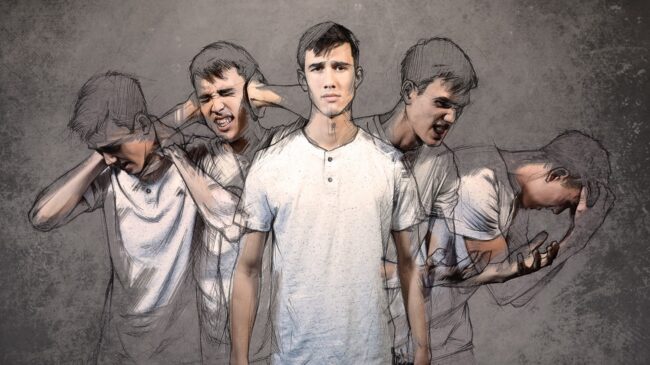
Though substance use disorder cannot cause schizophrenia, it may act as an environmental trigger. People with extended substance use remain at a high risk of developing schizophrenia, and substances like cocaine, marijuana, and amphetamines worsen the severity of the symptoms.
Also, most people often mistake schizophrenia for substance use disorder because of similar symptoms. However, researchers have come up with several theories and findings over time, explaining the link between schizophrenia and addiction. These studies include:
There may be an overlap in brain circuits involved with both conditions.
While one study says that prolonged drug use causes neural changes in the same parts of the brain affected by schizophrenia, another theory suggests that problems in the brain reward circuitry affected by schizophrenia may increase the rate of substance use disorder in people with schizophrenia. For example, abnormal brain wiring makes nicotine and other drug use more satisfying.
Another type of brain deficit could play a part.
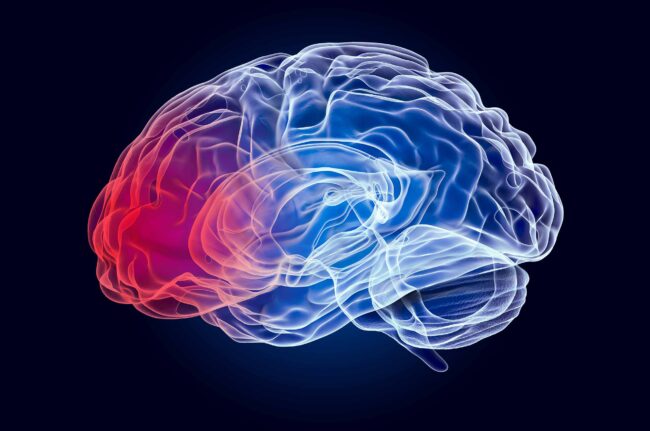
Brain deficit is a condition where the brain doesn’t work as well as it should. For example, if a brain exhibits poor working memory or a short attention span, the brain function is said to be disruptive.
Though these neural shortfalls occur before psychotic symptoms, some researchers believe they are the future symptoms of schizophrenia and addiction.
People with mental illness might use drugs to self-medicate.
According to experts, the reason why people with schizophrenia start relying on drugs is to self-medicate. They believe drugs help ease their schizophrenic symptoms, such as poor social functioning, which includes difficulty solving social problems, handling relationships, and succeeding at work.
Though substance use disorder appears before the symptoms of schizophrenia, heavy substance use in young adults might ramp up the chances of having psychotic symptoms in the future.
Genetics plus substance use disorders may cause schizophrenia
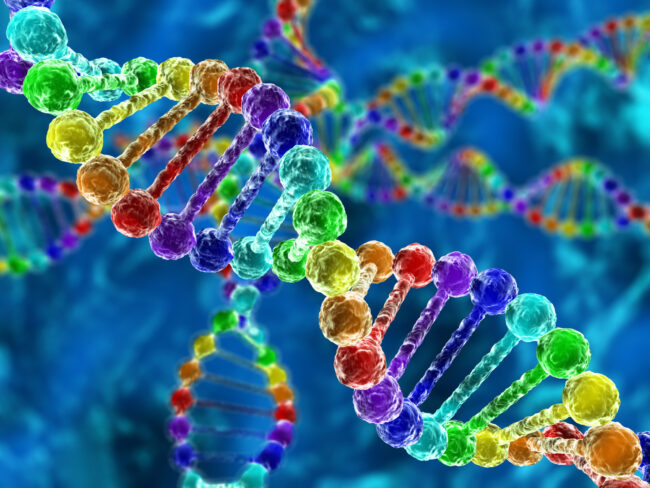
Diathesis-stress model is another theory that presents a strong viewpoint. It says that when genetic tendencies mix with dreadful substance use, the two can bring on schizophrenia.
However, the theory’s key point is that substance use disorder alone does not cause schizophrenia.
On the other hand, strong evidence shows that childhood trauma can bring on symptoms of schizophrenia when it is combined with genetic tendencies.
Nicotine is a common addiction in people with schizophrenia
Depending on the national survey report, the rate of drug users with schizophrenia is as high as 90%. And several theories back this up, aside from the brain reward circuit theory:
- Nicotine or smoking habit might help ease the anxiety symptoms or help cope with the social stigma.
- Nicotine in tobacco products helps ease symptoms of schizophrenia and the side effects of any medications used to treat them.
- Studies on animal models of schizophrenia showed improvement in attention and memory due to nicotine.
How Does Addiction Affect Schizophrenia?

Addiction or substance use disorders are not only the cause of schizophrenia; they can be dangerous or destructive in other ways as well:
- More suicides occur
- They can result in more hospital stays
- You might stop complying with your mental health treatment
- Your chances of violence go up
- They can make day-to-day life even more difficult
Treating Schizophrenia and Addiction Together
Because schizophrenia is a complex brain disorder, schizophrenia treatment is further complex and multi-layered. The complexity of treatment is especially true for those battling with both schizophrenia and addiction.
The existence of both these disorders is often referred to as co-occurring disorders. Most healthcare professionals believe that co-occurring disorders, such as substance use disorder and schizophrenia, should be treated together.

Along with certain medications, behavioral therapies are effective in treating co-occurring conditions. For example:
- Cognitive behavioral therapy (CBT) is a form of talk therapy that challenges negative or destructive thoughts and helps change behaviors in response to triggering situations.
- Dialectical behavioral therapy (DBT) involves various techniques that draw on mindfulness to improve relationships, manage emotions, and cut back disruptive behaviors.
- Assertive community treatment (ACT) is a team-based approach that helps patients be more socially involved, maintain their health, and reduce the chances of homelessness.
While these treatment options require a deep compassion and understanding of schizophrenia, professional intervention is needed.
Schizophrenia is highly destructive yet treatable if you take the proper steps. Hence, if you are struggling with co-occurring disorders, such as schizophrenia and addiction, the dual diagnosis treatment centers can help.
So, what are you waiting for? Contact your nearest rehab center to enroll in highly-specialized treatment programs.
